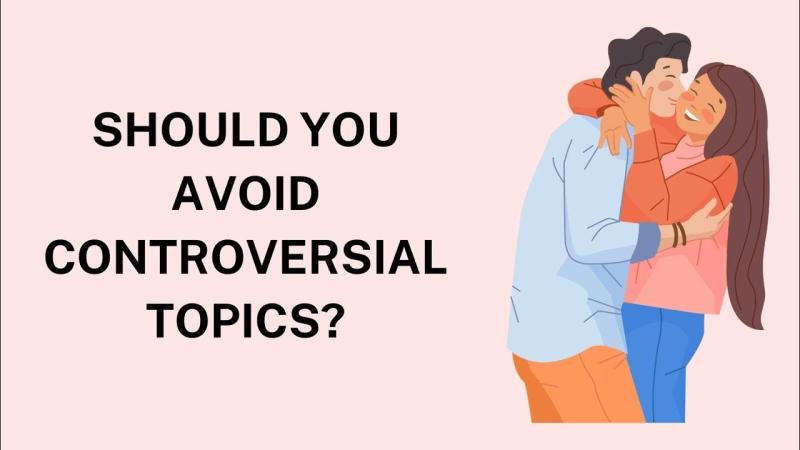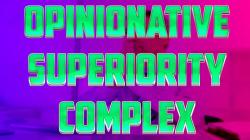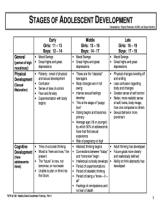Why do people avoid controversial topics?
People often avoid controversial topics in conversation because those subjects can trigger conflict, discomfort, or social tension. Here are the main reasons:
1. Fear of Conflict
Controversial topics—like politics, religion, or social issues—can quickly escalate into arguments.
Many people would rather preserve peace than risk a heated debate that damages relationships.
2. Desire to Maintain Harmony
In social or professional settings, keeping conversation light can make interactions smoother.
Avoiding divisive issues helps prevent awkwardness and keeps the atmosphere friendly.
3. Risk to Relationships
Strong opinions can clash with friends’, family’s, or colleagues’ values.
People may avoid topics that could create lasting resentment or alienation.
4. Fear of Judgment
Sharing an unpopular opinion can lead to criticism, ridicule, or being labeled in a negative way.
Some avoid speaking up to protect their public image or reputation.
5. Lack of Trust or Safety
People tend to open up only when they feel psychologically safe.
If they suspect others might use their words against them, they steer clear of sensitive topics.
6. Emotional Exhaustion
Debating controversial issues can be mentally draining.
Many choose to conserve their energy rather than engage in arguments they feel won’t change minds.
7. Uncertainty or Lack of Knowledge
If someone doesn’t feel informed enough about a topic, they may avoid it to prevent embarrassment.
Some fear saying something wrong or unintentionally offending others.
8. Cultural and Social Norms
In certain cultures, discussing politics, religion, or money is considered impolite in casual conversation.
Workplace etiquette often discourages such discussions to maintain professionalism.
In short: People avoid controversial topics to protect relationships, maintain harmony, avoid judgment, and reduce stress. It’s often a choice to prioritize social comfort over full expression of opinions.
Why People Avoid Discussing Controversial Topics
People often avoid discussing controversial topics due to a complex interplay of psychological factors and social pressures.
Why Do People Avoid Discussing Controversial Topics?
The reluctance to engage in controversial discussions stems from a deep-seated desire to maintain comfort and avoid perceived negative outcomes.
Fear of Conflict and Disagreement: Many individuals are uncomfortable with confrontation and view disagreement as a threat to relationships.
The adage "don't talk about politics or religion" often reflects a learned avoidance of potential arguments. Discomfort with Strong Emotions: Controversial topics can evoke intense emotions like anger, frustration, or sadness, both in oneself and others. People may avoid these discussions to regulate their own emotional state or prevent upsetting others.
Perceived Lack of Control: Individuals might feel they lack the communication skills to navigate complex, emotionally charged conversations effectively, leading to a sense of helplessness or a fear of making the situation worse.
Desire for Harmony and Consensus: In many social settings, there's an unspoken expectation to maintain peace and agreement, making it difficult to introduce topics that might disrupt this equilibrium.
What Psychological Reasons Lead to Avoidance?
Several psychological mechanisms contribute to the avoidance of controversial topics:
Fear of Social Backlash: This is a powerful motivator. People fear being judged, ridiculed, ostracized, or losing respect from colleagues, friends, or family if their opinions diverge from the perceived norm.
This is particularly prevalent in environments with a strong emphasis on maintaining consensus. Echo Chambers and Confirmation Bias: Individuals tend to gravitate towards information and communities that affirm their existing beliefs, creating "echo chambers."
Venturing outside these comfortable spaces to discuss controversial topics can be jarring as it challenges cognitive and implicit biases, forcing individuals to confront the possibility that their viewpoints might be incomplete or incorrect. Complexity of Issues: Many controversial topics are multifaceted and deeply intertwined with various social, economic, and historical contexts.
The sheer complexity can be overwhelming, leading individuals to shy away from discussions they feel unprepared to handle comprehensively. Risk of Miscommunication: Sensitive subjects carry a high risk of misunderstanding. A well-intentioned point can be misinterpreted, leading to heated arguments, especially in online interactions where non-verbal cues are absent.
Emotional Exhaustion: Engaging in deeply held beliefs can be mentally and emotionally draining.
For many, the energy required to navigate these discussions thoughtfully and empathetically is significant, leading to avoidance for self-preservation.
How Does Social Pressure Influence Topic Avoidance?
Social pressure plays a significant role in shaping our willingness to engage in controversial discussions. This influence can be subtle or overt:
Conformity and Groupthink: Humans have an innate desire to fit in and belong to social groups.
This can lead to conformity, where individuals suppress their true opinions to align with the majority. Groupthink occurs when a group prioritizes harmony and consensus over critical evaluation, leading to irrational decisions or the avoidance of dissenting views. In such environments, challenging the status quo can induce fear of rejection or conflict. Peer Sanctioning: Social networks can exert pressure through "peer sanctioning," ranging from subtle glances of disapproval to more direct criticism or ostracization.
Individuals, especially those more central in a social network, may feel compelled to conform to group norms to maintain their social standing. Perceived Social Norms: Whether explicit or implicit, social norms about "polite conversation" often dictate that certain topics (like politics, religion, or sensitive social issues) are off-limits to avoid tension.
This can create a culture of silence around important subjects. Desire for Social Acceptance: The deep-rooted human need for companionship and approval drives people to avoid actions that might lead to disapproval, including expressing controversial viewpoints.
What Are the Consequences of Avoiding Important Conversations?
The avoidance of difficult and controversial conversations, while offering short-term relief, carries significant long-term consequences for individuals, relationships, and society:
Deterioration of Trust and Collaboration: When issues are left unaddressed, resentment can build.
In workplaces, this stifles innovation, creates siloes, and leads to a decline in employee engagement. In personal relationships, it erodes trust and can lead to misunderstandings and emotional distance. Escalation of Conflict and Tension: Unresolved issues tend to fester and grow, often leading to bigger, more explosive conflicts down the line.
Avoiding initial discomfort often results in greater pain later. Stifled Innovation and Growth: For organizations, avoiding challenging discussions means missing out on valuable insights, alternative perspectives, and opportunities for improvement. Problems go unsolved, and progress stagnates.
Increased Polarization: When people don't engage with opposing viewpoints constructively, they retreat into their own ideological bubbles. This lack of dialogue fuels polarization, making compromise impossible and transforming diverse opinions into zero-sum battles. It hinders the ability to find common ground and cooperative solutions.
Compromised Values and Misinformation: Silence can be interpreted as assent, allowing harmful practices or misinformation to persist unchecked. Without open discussion, individuals may not have the opportunity to challenge their own assumptions or learn from others, leading to a less informed and adaptable society.
How Can One Overcome Fear of Controversial Discussions?
Overcoming the fear of controversial discussions requires intentional effort, self-awareness, and the development of specific communication skills:
Know Your Beliefs and Your Sources: Before engaging, take time to understand your own stance on the issue and scrutinize the facts supporting it.
Be aware of your own biases and the potential for misinformation. Channel Your Courage and Manage Emotions: Recognize that fear is a natural response, but it is also manageable.
Practice deep breathing to calm yourself. Remind yourself that discomfort is often a sign of growth. Be Clear, Honest, and Compassionate: State your point of view calmly and clearly.
Approach the discussion with compassion, recognizing that others' perspectives are shaped by their own experiences. The goal isn't to "win" but to understand and be understood. Listen Actively: This is paramount. Really listen to understand the other person's perspective, rather than just waiting for your turn to speak.
Ask open-ended questions to encourage them to elaborate, and be prepared to be surprised by their viewpoint. Focus on understanding their reasoning and feelings. Set and Respect Boundaries: You don't have to engage in every argument or tolerate disrespectful behavior. Be prepared to politely disengage if the conversation becomes unproductive or abusive.
Practice Gradually (Exposure Therapy): Start with less intense controversial topics and gradually work your way up. Practice with people you trust first. Learning assertive communication techniques can help you express your position without attacking others.
Seek Support: Consider joining groups or workshops focused on civil discourse or communication skills.
If fear of conflict is severely debilitating, professional help, such as cognitive-behavioral therapy (CBT), can be beneficial.











